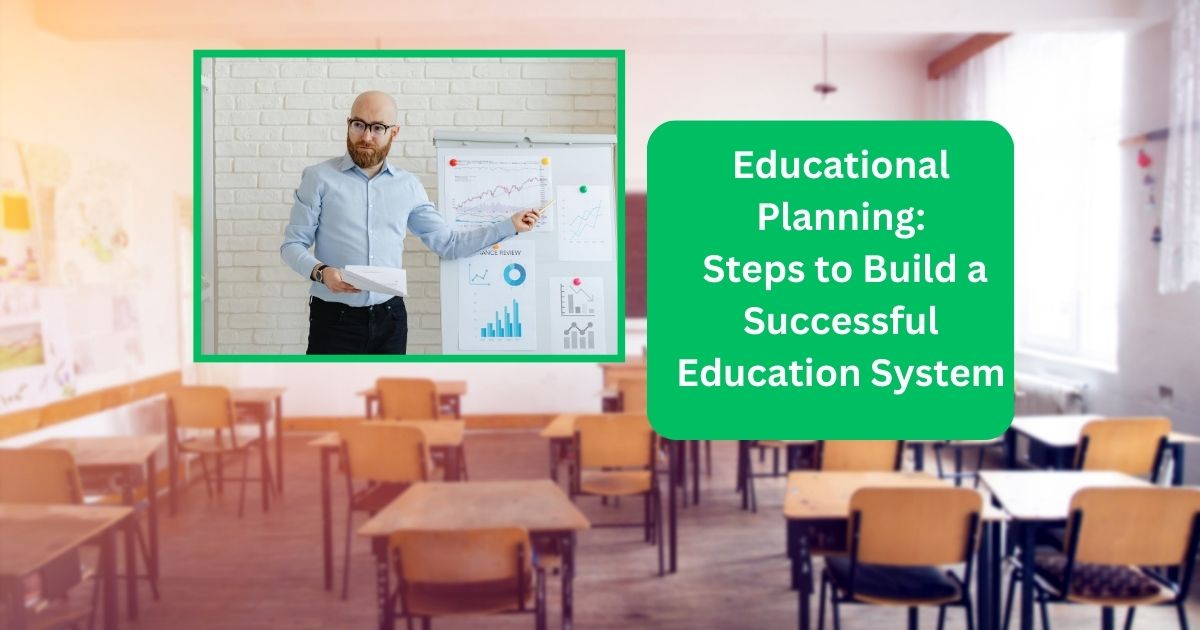Introduction
Educators are critical leaders in the educational landscape. Their leadership extends beyond the classroom to include curriculum development, policy advocacy, and the promotion of a culture of continuous learning. Effective educational leadership motivate and assists pupils to attain their greatest potential by establishing critical thinking skills and a desire to learn. They also work with colleagues to foster a supportive professional community.
Educators also campaign for educational reforms, addressing societal issues, and moulding the future of education. Their leadership is critical in developing well-rounded, informed, and empowered people who actively contribute to society, emphasizing the enormous impact. Educators are the leaders in creating the future generation.
Educators possess substantial leadership power in the educational sphere. They direct and control educational policy, curriculum creation, and school improvement programs in addition to teaching. Effective educators set a good example by establishing a culture of excellence and innovation inside their organizations.
Educators encourage kids to be lifelong learners by promoting principles such as accountability and empathy. Furthermore, educators frequently mentor their colleagues, sharing best practices and promoting professional development. Their leadership includes pushing for equitable educational opportunities as well as tackling societal challenges. Educators act as positive change agents who shape the future of education and shape the leaders of tomorrow through their visionary leadership and dedication.

Role of Educators in Society
Educators play an important role in society by moulding individuals’ intellectual, social, and moral growth, thereby contributing to the community’s overall advancement and well-being. They are not only knowledge providers, but also mentors, role models, and growth facilitators.
Educators convey knowledge and critical thinking skills to students, providing them with the tools they need to excel academically and professionally. They create a passion for learning and promote lifelong learning. Educators encourage social growth by instilling ideals such as tolerance, empathy, and cooperation. They foster responsible and compassionate citizens by creating inclusive environments that respect varied opinions.
Educators are necessary for moral and ethical direction. They instil integrity, ethics, and the value of civic responsibility, contributing to society’s moral life.
Educators are more than just teachers; they are community leaders, education reform advocates, and change agents. Their significance extends beyond academia, as they can construct a more enlightened, compassionate, and equal society.
Qualities of Effective Educational Leadership

A wide range of basic competencies are expected of successful educational leaders. They are very communicative and promote freewheeling discussion among their employees, students, and partners. They know what to do and are able to mobilize people to accomplish a given objective. They operate with the understanding and commitment towards providing the best of decisions to ensure the best treatment for everyone.
It also clearly notes that effective leaders are those who are flexible in approach and are forward-looking rather than providing for new education needs. They demonstrate that they are willing to work, act professionally and ethically and improve as professionals every single day. They are also masters of problem-solving and decision-making that will address issues to the advantage of the school and its students. Effective educational leaders, in the end, build a good empowering and productive school climate.
Educational leaders in the twenty-first century possess several qualities that enable them to govern and encourage positive change in educational organizations.
Characteristics of Educational Leaders
- Visionary: Leaders have a vision for the future of education that others can buy into with the requirement that this vision is positive. Empathy: All of them understand the requirements and the issues which are concerning to kids, teachers, and staff, and all of them seem to be courteous.
- Strong communication skills: It enables them to discuss, to receive feedback and to develop teamwork.
- Integrity: They are also good role models as they set the pace on issues to do with honesty and integrity.
- Decision-Making: They come up with the right decisions on time that are suitable to the students and the institution. Strategic leaders cultivate a culture of cooperation and partnership with the company’s employees and other stakeholders.
- Accountability: Both are willing to take or assume or deserve the consequences of either their conduct or the conduct of the other party.
- Problem-Solving: They are aware, competent and innovative when it comes to issues identification, management, and providing new methods of overcoming them.
- Lifelong Learners: To provide quality services educators and school leaders need to be committed to this profession and learning.
- Resilience: Also, they can continue with difficulty and hardships and remain optimistic always.
- Inclusivity: It supports equal opportunities for employment and education of persons of different race, colour, sex, age, disability, and others.
- Student-Centered: They act in the best interest of students proactively and responsively at every given time.
- Results-Oriented: Executive people focus on having targets or objectives which must be met and result in tangible achievements.

Leadership of educators
Teachers are often leaders in formal and informal ways, leading education change on different levels. Here’s how teachers can be leaders:
- Classroom Leadership: Teachers can be thought of as being managers in the classroom and teaching is the management of learning. They provide direction, expectations and an environment as far as learning is concerned and are welcoming to all kinds of learners.
- Curriculum Development: For curriculum and educational resource selection and development educators have had a voice. They choose the strategies, lessons, and information that are conducive to education aims and which conform to the learning requirements.
- Mentoring: One reason for this is that experienced teachers always teach and guide other teachers. This particular skill is very important for their personal development and the overall development of education.
- Advocacy: Educationists support issues that enhance the quality of education. They may form or become members of teacher unions, advocate for their clients and kids and/or speak on all matters that touch students and educators.
- Innovation: Most of them are pioneers of educational change, they test out innovative approaches to learning and instruction, introduce technology solutions, and research teaching practices to enhance student learning.
- Community Engagement: They acquire partnerships and engage parents and stakeholders in the learning process through a connection between schools and their surroundings. Teachers often assume leadership positions inside the school contexts by being promoted as head of a certain department being in charge of designing the school curriculum and even being principal.
- Continuous Learning: Leadership for an educator involves professionalism in that an efficient educator is a continuous learner who applies the updated information to their teaching practice. This is because teachers are role models of their students, they demonstrate such qualities as perseverance, politeness and passion in their job.
- Crisis Management: They have shown stewardship during calamities like the current pandemic by embracing new trends in delivering content and being a source of comfort to learners.
- Advocating for Educational Equity: Most teachers are passionate advocates for educational equality, striving to ensure that all children regardless of the starting point in life have the same shot at an excellent education.
Educators as change makers
Teachers impose changes and affect the future by educating students. They develop creativity and analytical skill levels among children and prepare them to meet the problems of the world. Schools foster positive change and understanding from one another through conscious teaching of togetherness. They also advocate for educational change; issues that may include issues of equity and inclusion.
Students were correctly guided showing them correct moral standards and values that should be followed in their everyday life. By research, they address the shifts in educational needs as embraced by curriculum development and technology. In the end, educators hold the possibility of changing generations positively, creating informed, caring, empowered citizens and agents of change for real social change interventions.
Conclusion
Educational leadership is a key element that shapes the future: it contributes to the education of those in local communities on the value of learning, innovation, and bringing about positive changes. Educators are considered more than just teachers; they are also mentors, advocates, and visionaries who, through their examples, inspire students and parents. Their influence within and outside the classroom shapes educational policy, promotes equity, and drives forward social change. When resilient, empathetic, and accountable, educators create learning environments characterized by inclusiveness and dynamism. As change-makers, they nurture individuals capable of informed and ethical living, ensuring a brighter and more equitable future. Education leadership, although thought of by many as a lesser role, is thus the most basic point on which any strong educational system has to be built.
You may also like to read:- UNESCO Report: The Impact of Climate Change on Education
How to Promote Equity in the Classroom for Student Success
- How to Dominate Your Online Business With 5 Proven Digital Marketing Strategies
- How to Cultivate Critical Thinking and Problem-Solving Skills in Classroom
- Top Proven Mental Health Strategies for Schools in 2025-26
- Time Management for Teachers: How to Plan, Prioritize, and Perform Better
- How Parental Involvement in Education Shapes a Child’s Growth and Success



